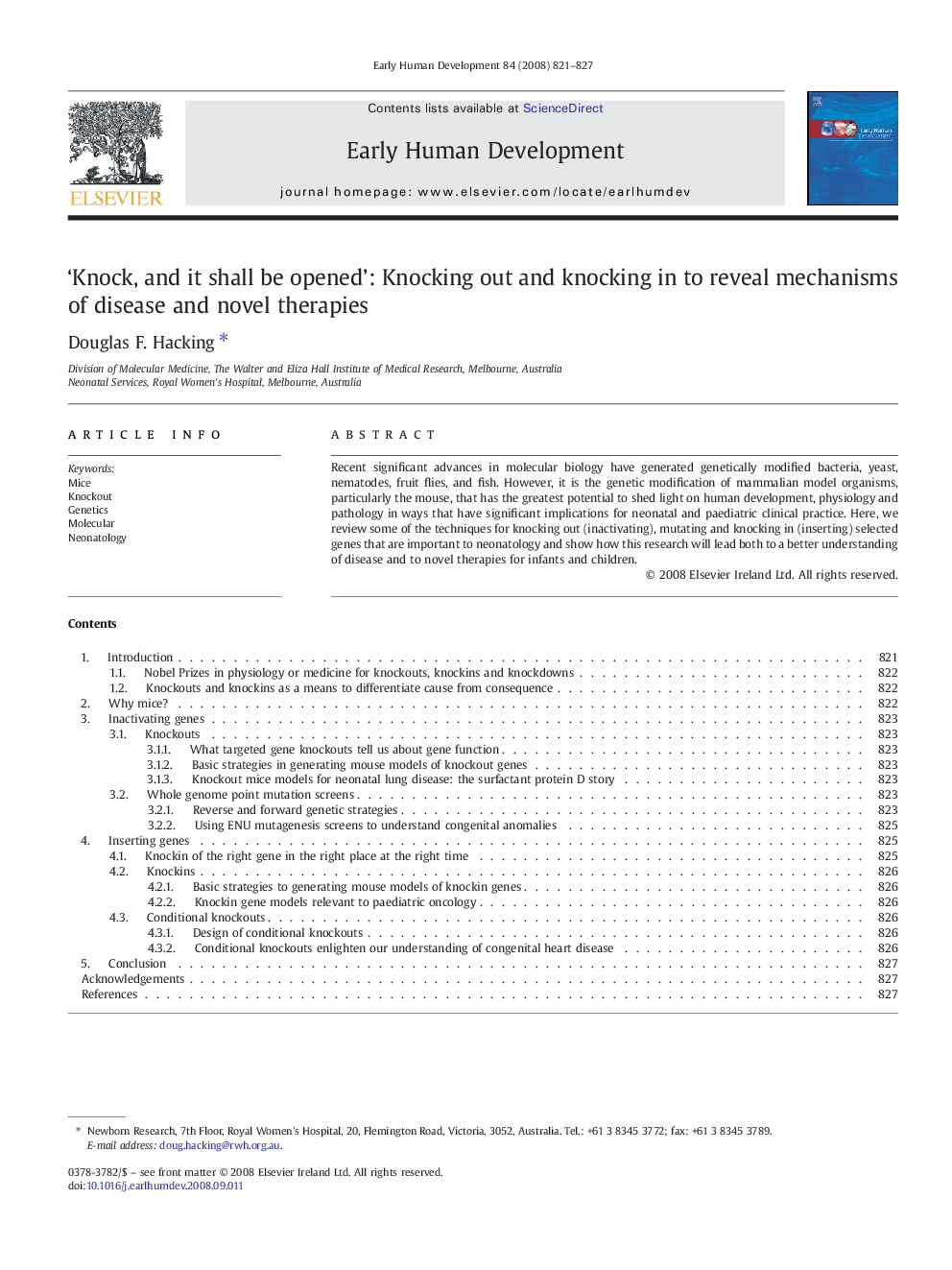| Article ID | Journal | Published Year | Pages | File Type |
|---|---|---|---|---|
| 3918066 | Early Human Development | 2008 | 7 Pages |
Abstract
Recent significant advances in molecular biology have generated genetically modified bacteria, yeast, nematodes, fruit flies, and fish. However, it is the genetic modification of mammalian model organisms, particularly the mouse, that has the greatest potential to shed light on human development, physiology and pathology in ways that have significant implications for neonatal and paediatric clinical practice. Here, we review some of the techniques for knocking out (inactivating), mutating and knocking in (inserting) selected genes that are important to neonatology and show how this research will lead both to a better understanding of disease and to novel therapies for infants and children.
Related Topics
Health Sciences
Medicine and Dentistry
Obstetrics, Gynecology and Women's Health
Authors
Douglas F. Hacking,
